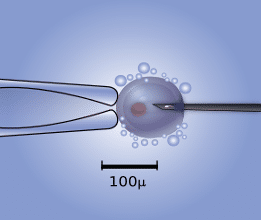Artificial gene synthesis was first reported in 1972 when a group of researchers at Massachusetts Institute of Technology synthesized a complete yeast alanine tRNA gene. Synthesis of the first peptide- and protein-encoding genes ensued in the following decade. Since then, synthetic biology has advanced in leaps and bounds, and custom gene synthesis, a one-time expensive option for molecular biologists has now become more affordable. Thanks to an increase in the number of service companies and advances in synthetic biology itself, this technology is now accessible to most researchers.
Custom gene synthesis derives from oligonucleotide synthesis technology, the gold standard method for the synthesis of PCR primers. Oligo synthesis occurs in an automated chemical process that joins bases in the desired order on a solid support. The inefficiency of this chemical process means that the maximum possible oligo length is around 120 bases. That is only around 1/10th of the average gene length.
Gene synthesis builds on this platform using proprietary technologies to join the oligos to make your full gene. Most companies will even clone the product into your desired expression vector.
Advantages of Custom Gene Synthesis
The immediate advantages of gene synthesis over conventional PCR are obvious and appear frequently in the scientific literature.
- Since artificial gene synthesis negates the need for template DNA, we can now readily access genes that were previously off-limits. For example, we no longer need to worry about isolating DNA from hazardous organisms e.g. HIV.
- Gene synthesis is a useful codon optimization tool to circumvent codon bias issues during heterologous protein expression. By designing DNA sequences to only include codons preferred by the intended expression host, protein expression can be improved significantly.
- Gene synthesis also brings a welcome predictability to the uncertain discipline of gene isolation and cloning.
Theoretically, it is possible to make an entirely synthetic double-stranded DNA molecule with no restrictions on length or nucleotide sequence. In fact, artificial gene synthesis has been used to generate functional microbial chromosomes containing up to one million base pairs!
The World Is Your Oyster With Custom Gene Synthesis
An additional use of gene cloning is to change the DNA sequence to produce a modified protein product. As a customer, you can specify as many point mutations as you like in your gene sequence. In fact, you could even make those mutations degenerate so that your synthesized gene becomes a library containing every possible amino acid at a given point in the protein. Alternatively, you could replace the first few codons of a poorly expressed gene with those of a well-expressed native gene, or add a tag to the N or C-terminal of the protein.
Ten years ago, custom gene synthesis came in at a price of approximately $0.69/base. This put the average purchase cost of a 1kb gene at a whopping $690. Nowadays, with continuously lowering prices, cloning a gene is almost on par with ordering an oligo, accelerating the pace of our research even further.
Want to have articles like this delivered to you every day? Subscribe to our feed!
Originally published in 2007. Updated and republished in 2017.







